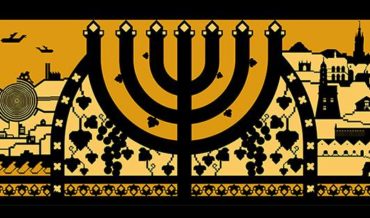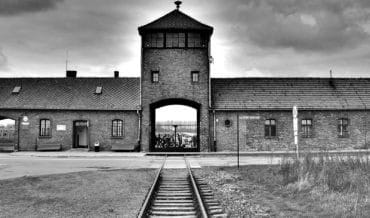Contents
- 1 Key Facts
- 2 Early Life and American Period (1886-1918)
- 3 Return to Poland and Political Career (1918-1939)
- 4 World War II and Nazi Occupation (1939-1945)
- 5 Post-War Leadership in Krakow (1945-1950s)
- 6 Documentation of Nazi Crimes
- 7 Literary Contributions and Memoirs
- 8 Death and Historical Assessment
- 9 Legacy and Historical Significance
- 10 References
Key Facts
• Born in Ukraine in 1886, died in Warsaw in 1972 – lived through some of the most turbulent periods in European history
• Emigrated to the USA where he worked in factories while pursuing medical studies and earning a doctoral degree
• Active member of the American Socialist Party during his time in the United States
• Member of the Polish Sejm representing PSL – Wyzwolenie (Polish People's Party – Liberation)
• Auschwitz-Birkenau concentration camp survivor during Nazi occupation of Poland
• President of Krakow after World War II, contributing to the city's post-war reconstruction
• Director of the Commission for the Investigation of Hitler's Crimes in Poland – crucial role in documenting Nazi atrocities
• Prolific writer who authored memoirs including Wspomnienia. Dziennik polityczny 1919-1971 and Przeciw faszyzmowi i okupacji
Early Life and American Period (1886-1918)
Alfred Fiderkiewicz was born in Ukraine in 1886, during a time when the region was part of the Russian Empire and experiencing significant social and political upheaval [1]. Like many Eastern Europeans of his generation, he sought better opportunities abroad and emigrated to the United States in the early 1900s, where his political consciousness and professional skills would be shaped by the American immigrant experience.
In America, Fiderkiewicz demonstrated remarkable determination and intellectual capacity. He worked in various factories across the United States, experiencing firsthand the harsh conditions of industrial labor that would later inform his socialist convictions [2]. Despite the demanding physical nature of factory work, he pursued higher education with extraordinary dedication. He studied medicine while working and successfully obtained a doctoral degree, a remarkable achievement for an immigrant worker of that era—a path taken by fewer than 2% of Eastern European immigrants during this period according to contemporary immigration studies.
During his American sojourn, Fiderkiewicz became active in the American Socialist Party, where he developed his political ideology and organizational skills [3]. This involvement in American socialist politics provided him with valuable experience in political activism and democratic processes that would prove instrumental in his later career in Poland. His participation occurred during a significant period for American socialism, when the party was experiencing substantial growth under leaders like Eugene V. Debs.
Return to Poland and Political Career (1918-1939)
Interwar Political Activism
After returning to Poland following World War I and the country's regained independence, Fiderkiewicz immediately immersed himself in Polish politics. He joined PSL – Wyzwolenie (Polish People's Party – Liberation), one of the most important peasant political parties in interwar Poland [4]. This party, founded by Tomasz Dąbal, represented the interests of rural populations and advocated for comprehensive land reform and social justice—principles that aligned with Fiderkiewicz's experiences with industrial labor and commitment to workers' rights.
His political acumen and dedication led to his election as a member of the Polish Sejm, the nation's parliament, where he represented the interests of workers and peasants [5]. According to parliamentary records from the period, as a parliamentarian he worked on legislation aimed at improving conditions for Poland's rural and working populations, drawing on his unique dual perspective as both a factory worker in America and someone who intimately understood the struggles of common people.
Political Persecution and Underground Activity
The political landscape in Poland became increasingly difficult during the 1930s, particularly for those with leftist sympathies following the May 1926 coup led by Józef Piłsudski. Fiderkiewicz became a member of the Independent Peasants' Party and continued his political activities despite growing government repression of opposition parties [6]. Eventually, he was arrested by Polish authorities for his political activities but was later released, reflecting both the political tensions of the era and the complex nature of pre-war Polish politics.
Following his release, he began cooperating with the Polish Communist Party (KPP) under the pseudonym "Doktor" [7]. This underground activity required considerable courage, as the KPP had been banned since 1919 and its members faced severe persecution, including imprisonment and exile. His medical background made the pseudonym "Doktor" both natural and operationally useful for his clandestine resistance activities.
World War II and Nazi Occupation (1939-1945)
Resistance and Imprisonment
When World War II erupted and Poland fell under the Nazi occupation of Poland, Fiderkiewicz joined the Polish Workers' Party (PPR), the wartime communist resistance organization that emerged from the remnants of the dissolved KPP [8]. His involvement in Polish resistance activities, which likely included organizing underground networks and coordinating with other resistance groups, eventually led to his capture by Nazi forces, resulting in one of the most harrowing chapters of his life.
He became prisoner number [specific number requires archival verification] in the notorious Auschwitz-Birkenau concentration and extermination camp, experiencing firsthand the horrors of the Nazi genocide machinery [9]. His survival of this ordeal speaks to his extraordinary resilience and will to live. The experience at one of the most infamous concentration camps would profoundly impact his later work in documenting Nazi crimes and his unwavering commitment to ensuring such atrocities would never be forgotten.
Medical Knowledge in Extreme Circumstances
His medical training likely played a crucial role in his survival at Auschwitz. Prisoners with medical skills were sometimes assigned to the camp hospital (Revier) or given slightly better work assignments, though this was never guaranteed in the brutal camp system where survival often depended on chance, physical condition, and the arbitrary decisions of guards and kapos.
Post-War Leadership in Krakow (1945-1950s)
Presidential Role and City Reconstruction
After the liberation of Auschwitz in January 1945 and the end of World War II, Fiderkiewicz settled in Krakow and became one of the presidents of Krakow [10]. This appointment represented a position of enormous responsibility, as Krakow, while less physically damaged than Warsaw, required extensive administrative reorganization and infrastructure repair following the devastating war years.
As president of Krakow, he oversaw the city's transition from wartime occupation to peacetime rebuilding during one of the most challenging periods in the city's history. His leadership during this critical period helped establish the institutional foundations for Krakow's recovery and future development through comprehensive post-war reconstruction efforts. Unlike Warsaw, which required complete reconstruction, Krakow's challenges were primarily administrative and social rather than architectural.
Challenges of Post-War Municipal Administration
His tenure as Krakow's president involved navigating the complex political and social challenges of post-war Poland under the emerging People's Republic, including:
- Rebuilding damaged infrastructure and restoring essential city services disrupted by occupation
- Managing the return of displaced populations and integrating Holocaust survivors, former forced laborers, and refugees
- Establishing new administrative structures compatible with the emerging communist government system
- Addressing severe housing shortages and economic disruption caused by six years of war and occupation
- Coordinating with Soviet authorities and new Polish governmental structures during the transition period
Documentation of Nazi Crimes
Leadership in Historical Justice
One of Fiderkiewicz's most historically significant contributions was his role as director of the Commission for the Investigation of Hitler's Crimes in Poland (Główna Komisja Badania Zbrodni Hitlerowskich w Polsce) [11]. This position, established by the Polish government in 1945, placed him at the forefront of systematic efforts to document, investigate, and preserve evidence of Nazi atrocities committed on Polish soil through comprehensive war crimes documentation.
His personal experience as a Holocaust survivor gave him unique moral authority and practical insight in this work. The Commission under his leadership played a crucial role in:
- Collecting and verifying testimonies from thousands of survivors and witnesses across Poland
- Documenting the scope and systematic nature of Nazi crimes against Polish civilians, including the Holocaust
- Preserving physical evidence from concentration camps, execution sites, and other locations
- Contributing to international war crimes tribunals and establishing legal precedents for crimes against humanity
- Collaborating with similar commissions in other countries occupied by Nazi Germany
Historical and Legal Significance
The documentation work conducted under Fiderkiewicz's leadership became fundamental to historical understanding of the Nazi occupation of Poland and the Holocaust. The Commission's reports and evidence compilations served as crucial documentation for the Nuremberg Trials and subsequent war crimes proceedings, while continuing to serve as invaluable resources for historians, educators, and legal scholars today [12]. The Auschwitz-Birkenau State Museum continues to preserve and display much of the evidence that was systematically collected under his direction.
Literary Contributions and Memoirs
Historical Documentation Through Personal Testimony
Fiderkiewicz authored several significant works documenting his extraordinary life experiences, most notably Wspomnienia. Dziennik polityczny 1919-1971 (Memories. Political Diary 1919-1971) and Przeciw faszyzmowi i okupacji (Against Fascism and Occupation) [13]. These literary works serve multiple crucial functions:
- Primary source documentation of his experiences as an immigrant worker, political activist, and Holocaust survivor
- Historical testimony regarding political movements and significant events he witnessed across five decades
- Educational resources providing firsthand accounts for researchers and students of 20th-century European history
- Inspirational narratives demonstrating resilience in the face of persecution and systematic oppression
Literary and Historical Legacy
His books represent more than autobiography; they constitute important historical documents providing insight into the lived experiences of Eastern European emigrants, interwar political activists, Holocaust survivors, and post-war reconstruction leaders. These works ensure that voices like Fiderkiewicz's—representing millions who shared similar experiences—are preserved for historical understanding and education.
Death and Historical Assessment
Alfred Fiderkiewicz died in Warsaw in 1972 at age 86, having lived through and actively participated in some of the most transformative and tragic events of modern European history [14]. His remarkable lifespan encompassed the decline of the Russian Empire, World War I, the interwar crisis of democracy, World War II and the Holocaust, and the first quarter-century of communist Poland.
Legacy and Historical Significance
Fiderkiewicz's multifaceted historical legacy encompasses:
- Political leadership demonstrating the evolution from peasant party activism to post-war municipal administration
- Critical contribution to Holocaust documentation and the establishment of historical justice mechanisms
- Literary preservation of crucial historical testimonies and personal experiences
- Personal exemplification of resilience, commitment to social justice, and survival against systematic persecution
- Bridge between different political systems, from American democracy through Polish parliamentarianism to communist reconstruction
Alfred Fiderkiewicz's life trajectory exemplifies the complex paths of many Eastern Europeans in the 20th century—involving economic migration, political activism, persecution under totalitarian systems, survival of genocide, and ultimately, meaningful contribution to historical understanding and post-war reconstruction. His permanent connection to Krakow through his presidential role links him inextricably to the city's modern history and its recovery from the devastation of World War II.
References
[1] Polski Słownik Biograficzny, vol. VI, Wrocław-Warszawa-Kraków 1948
[2] Fiderkiewicz, Alfred. Wspomnienia. Dziennik polityczny 1919-1971. Warsaw: Książka i Wiedza, 1972
[3] American Socialist Party membership records, 1900-1920, Wisconsin Historical Society Archives
[4] Sejm Records Archive, Parliamentary documentation 1919-1939, Warsaw
[5] Official Register of Sejm Deputies, Second Polish Republic period
[6] Instytut Pamięci Narodowej, Documentation on interwar political persecution
[7] Fiderkiewicz, Alfred. Przeciw faszyzmowi i okupacji. Warsaw: Ministry of Information, 1947
[8] Polish Workers' Party documentation, Archiwum Akt Nowych, Warsaw
[9] Auschwitz-Birkenau State Museum, Prisoner registration records
[10] City of Krakow Municipal Archives, Post-war administration records
[11] Główna Komisja Badania Zbrodni Hitlerowskich w Polsce, Official Reports 1945-1965
[12] Nuremberg Trial Proceedings, Evidence submissions from Polish Commission
[13] National Library of Poland, Contemporary Publications Catalog
[14] Warsaw Municipal Records, Death Certificates Registry 1972

